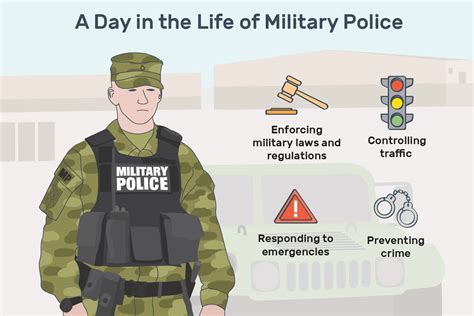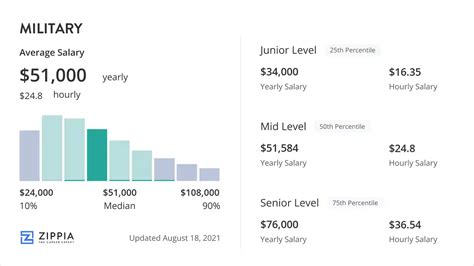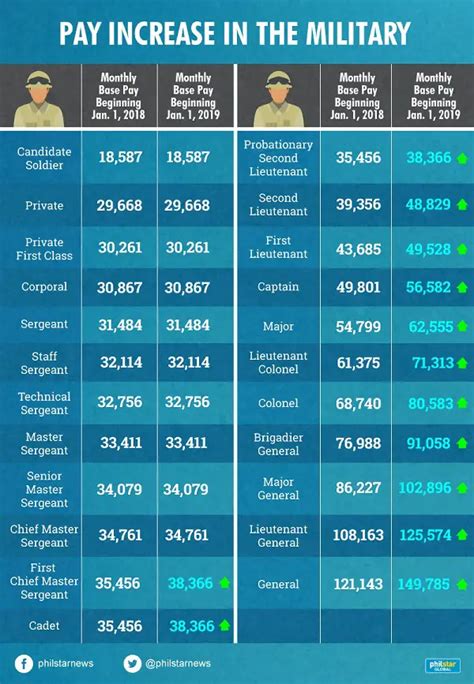A career as a Military Police (MP) officer offers a unique blend of service, duty, and professional development. It’s a path that builds discipline, leadership, and highly transferable law enforcement skills. But beyond the call of duty, how is this critical role compensated? While a traditional "salary" doesn't exist in the military, the total compensation package for an MP is often more substantial than many realize, with a typical annual value ranging from $50,000 to over $100,000 when you factor in all allowances and benefits.
This guide will break down the complete financial picture for a Military Police officer, exploring the components of their pay, the key factors that drive earnings, and the strong career outlook for those who serve.
What Does a Military Police Officer Do?

Military Police are the law enforcement and security professionals of the armed forces. Their responsibilities are vast and vital to the safety and order of military installations at home and abroad. While specific duties vary by branch—such as the Army's Military Police Corps, the Air Force's Security Forces, the Navy's Master-at-Arms, and the Marine Corps' Military Police—their core functions include:
- Law Enforcement: Patrolling bases, enforcing military laws and regulations, and responding to emergencies.
- Security Operations: Guarding installations, managing access control points, and protecting personnel and sensitive assets.
- Investigations: Conducting preliminary investigations into criminal activity and working with specialized units like the Criminal Investigation Division (CID).
- Combat Support: Providing battlefield support through convoy security, managing enemy prisoners of war, and maintaining order in operational zones.
It's a dynamic career that requires a high level of professionalism, integrity, and adaptability.
Average Military Police Salary

Understanding military compensation requires looking beyond a single salary figure. An MP’s total compensation is a package comprised of base pay, tax-free allowances, and special pay.
The foundation of military pay is determined by rank and years of service, which is standardized across all branches. According to the 2024 military pay charts released by the Defense Finance and Accounting Service (DFAS), a junior enlisted MP at rank E-4 (Corporal/Specialist) with three years of service earns a base pay of $2,828.70 per month, or $33,944.40 per year.
However, this is only the starting point. The most significant additions are the non-taxable allowances:
- Basic Allowance for Housing (BAH): This tax-free allowance covers off-base housing costs and varies significantly by location and dependency status. For an E-4 with dependents in a mid-cost area like Fort Cavazos, Texas, BAH is approximately $1,518/month, while the same E-4 stationed in San Diego, California, would receive around $3,297/month.
- Basic Allowance for Subsistence (BAS): This tax-free allowance covers the cost of food. For 2024, the rate for enlisted personnel is $460.25 per month.
Total Compensation Example:
An E-4 MP with 3 years of service stationed at Fort Cavazos, TX, with dependents could see a total monthly income of:
- Base Pay: $2,828.70
- BAH: $1,518.00 (tax-free)
- BAS: $460.25 (tax-free)
- Total Annual Compensation: Approximately $57,683.40, with over $23,000 of it being tax-free.
Salary aggregators reflect this complexity. Glassdoor reports a total pay range for Army Military Police from $53,000 to $86,000 per year, which aligns with the combination of pay and allowances for various ranks and locations.
Key Factors That Influence Salary

Several factors directly impact an MP's total compensation. Understanding them is crucial for mapping out your potential career earnings.
### Military Rank and Experience (Years of Service)
This is the single most important factor. The military pay system is designed to reward promotion and longevity. As an MP advances in rank (e.g., from an E-4 Specialist to an E-7 Sergeant First Class) and accumulates years of service, their base pay increases substantially.
- An E-4 with 3 years of service earns $33,944 in annual base pay.
- An E-7 with 10 years of service earns $56,588 in annual base pay.
- A commissioned O-3 (Captain) with 6 years of service earns $81,580 in annual base pay.
### Geographic Location
Where you are stationed has a massive impact on your take-home pay due to the Basic Allowance for Housing (BAH). A high-cost-of-living area like Hawaii or Washington, D.C., will come with a much higher BAH rate than a rural base in the Midwest. Furthermore, service members stationed overseas may receive an additional, tax-free Cost of Living Allowance (COLA) to offset higher prices.
### Type of Role (Enlisted vs. Officer)
A critical distinction in earning potential lies between enlisted personnel and commissioned officers. While enlisted MPs form the backbone of the force, commissioned officers serve in leadership and management roles. Officers are required to hold a bachelor's degree and earn significantly higher pay. An entry-level Second Lieutenant (O-1) earns more in base pay than most mid-career enlisted personnel, making the pursuit of a degree a strategic move for long-term earning potential.
### Area of Specialization
Within the Military Police field, certain specializations come with Special Duty Assignment Pay (SDAP) or bonuses. These roles are often more demanding or require advanced training. Examples include:
- K-9 Handler: Working with military working dogs.
- Criminal Investigator (CID Agent): A highly selective role for investigating felony-level crimes.
- Protective Services Detail (PSD): Providing close protection for high-ranking military and government officials.
- Corrections Specialist: Managing confinement facilities.
These specialized duties can add several hundred dollars to your monthly pay.
### Level of Education
While a high school diploma is the minimum requirement for an enlisted MP, education plays a vital role. As mentioned, a bachelor's degree is the gateway to becoming a commissioned officer, which places you on a much higher pay scale. Furthermore, the military offers outstanding educational benefits like Tuition Assistance and the Post-9/11 GI Bill, allowing you to pursue degrees while serving, which can set you up for higher earnings both in the military and in a post-service career.
Job Outlook

The U.S. military consistently needs qualified and dedicated Military Police to maintain security and order across its global presence, ensuring stable employment for those who serve.
More importantly, the skills and experience gained as an MP are highly sought after in the civilian world. The U.S. Bureau of Labor Statistics (BLS) projects employment for Police and Detectives to grow 3% from 2022 to 2032. The median pay for this civilian profession was $70,750 per year in 2023.
Veterans of the MP Corps are prime candidates for careers in:
- Local and state police departments.
- Federal law enforcement agencies (FBI, DEA, Secret Service, U.S. Marshals).
- Corporate security and asset protection.
- Private investigation.
The leadership, discipline, and security clearances obtained during service give former MPs a significant advantage in this competitive job market.
Conclusion

A career as a Military Police officer is far more than a job; it’s a commitment to protecting and serving. The compensation reflects this immense responsibility, offering a robust package that goes well beyond base pay. When you account for tax-free housing and food allowances, comprehensive healthcare, a generous retirement plan, and world-class educational benefits, the total value is formidable.
For individuals seeking a stable, honorable, and rewarding career path with excellent long-term prospects, the role of a Military Police officer provides a strong financial foundation on which to build a successful future.
